If you’ve ever noticed black mold in your home or workplace, you may be wondering if it poses a threat to your health. The short answer is yes, black mold can make you sick. Its toxic spores can lead to a range of health problems, from mild allergies to more severe respiratory illnesses.
In this article, we will take a detailed look at black mold and its potential impact on health. We will explore the symptoms of black mold exposure, the health risks associated with prolonged exposure, and the steps you can take to prevent black mold growth. We will also provide guidance on how to identify black mold in your environment and explain the importance of seeking professional help for black mold issues.
Understanding Black Mold
Black mold, also known as Stachybotrys chartarum, is a type of toxic mold that can have serious health implications for those exposed to it. While it commonly appears as black or dark green patches on damp surfaces, it can also grow in hidden places, such as inside walls or under carpets.
Causes of Black Mold
Black mold thrives in areas with excess moisture, such as leaky pipes, roofs, or windows, or areas with high humidity levels. It can also grow in areas with insufficient ventilation or poor air circulation, such as bathrooms or storage areas.
Characteristics of Black Mold
Black mold has a distinctive musty odor and can often be identified by its black or dark green color. It typically grows in clusters and has a slimy texture when wet. When it dries out, it can become powdery and release spores into the air.
Black Mold and Respiratory Problems
Exposure to black mold can lead to respiratory problems, such as wheezing, coughing, and difficulty breathing. This is because black mold spores can irritate the lungs and trigger allergies or asthma attacks. Prolonged exposure to black mold has been linked to more serious respiratory conditions, such as chronic obstructive pulmonary disease (COPD).
Black Mold Toxicity
Black mold is toxic and can produce mycotoxins, which can have harmful effects on the body. These mycotoxins can be absorbed through the skin, ingested, or inhaled, leading to a range of health issues.
Black mold toxicity can cause symptoms such as headaches, dizziness, nausea, and fatigue. It can also lead to more serious conditions such as neurological damage, organ damage, or even death in extreme cases.
It is important to address any signs of black mold growth promptly to prevent exposure and potential health risks.
Symptoms of Black Mold Exposure
Black mold exposure can lead to a range of symptoms, varying in severity and duration depending on individual susceptibility and the level of exposure. Common black mold symptoms include:
- Headaches
- Respiratory problems, such as coughing, wheezing, and shortness of breath
- Skin irritation
- Sore throat
- Fatigue
- Irritated eyes, nose, or throat
- Allergic reactions, such as sneezing, runny nose, and red eyes
It is important to note that some individuals may experience more severe symptoms, such as fever and difficulty breathing, particularly those with pre-existing respiratory conditions, weakened immune systems, or allergies. Additionally, prolonged exposure to black mold can result in more serious health effects.
Black Mold and Allergies
One of the significant health effects associated with black mold exposure is allergies. The spores from black mold can trigger an allergic reaction in some individuals, leading to symptoms such as sneezing, itching, and a runny nose. People who already suffer from allergies or have weakened immune systems are more susceptible to these symptoms.
Health Risks of Black Mold
While black mold is not always toxic, prolonged exposure to it can have serious health consequences. The health risks associated with black mold exposure can vary from person to person and depend on several factors, including the length of exposure, the type of mold, and an individual’s susceptibility to respiratory problems.
| Body System | Health Risks Associated with Black Mold |
|---|---|
| Respiratory System | Black mold can cause coughing, wheezing, and shortness of breath. In severe cases, black mold exposure can lead to respiratory infections and even permanent lung damage. |
| Immune System | Black mold exposure can weaken the immune system, making individuals more susceptible to illnesses and infections. |
| Nervous System | Some studies suggest that black mold exposure may be linked to neurological issues such as headaches, dizziness, and memory loss. However, more research is needed to confirm this connection. |
| Other Health Risks | Black mold exposure may also lead to skin irritation, digestive problems, and in rare cases, even death. |
If you suspect that you have been exposed to black mold and are experiencing any related symptoms, it is important to seek medical attention promptly. Ignoring black mold exposure can lead to worsening health problems and even long-term complications.
Identifying Black Mold in Your Environment
Black mold is a type of fungus that thrives in damp and poorly ventilated environments. It can be challenging to identify black mold solely based on its appearance, but there are some visual cues to look for.
| Signs of Black Mold | What to Do |
|---|---|
| Dark spots or blotches on walls, ceilings, or floors | Contact a professional mold inspector |
| Musty or earthy odor in specific areas of your home or workplace | Investigate areas for moisture damage or leaks |
| Allergic reactions, such as sneezing, itchy eyes, and skin rash | Consider getting professional mold testing done |
It’s important to note that not all black mold is toxic, and only certain types of black mold produce mycotoxins that can cause health problems. Professional mold testing can determine if you have toxic black mold in your environment and what steps to take for remediation.
When to Contact a Mold Professional
If you suspect that your home or workplace has a black mold infestation, it’s best to contact a mold remediation professional. These experts have specific training in identifying and removing all types of mold, including the toxic ones. Additionally, they have access to specialized equipment and protective gear to safely remove black mold and prevent it from spreading.
Attempting to remove black mold on your own can be dangerous, leading to the release of harmful spores into the air and potentially causing a more severe problem. It’s crucial to address black mold issues promptly and effectively to minimize health risks and avoid costly property damage.
The Link Between Black Mold and Serious Illness
While the health effects of black mold exposure may vary depending on individual factors such as age, preexisting health conditions, and the duration and intensity of exposure, recent studies have investigated the potential link between black mold and serious illnesses.
Respiratory Infections
According to the Centers for Disease Control and Prevention (CDC), exposure to black mold can cause respiratory problems such as coughing, wheezing, and shortness of breath. In some cases, it may also lead to the development of respiratory infections, particularly in individuals with weakened immune systems or underlying respiratory conditions such as asthma or chronic obstructive pulmonary disease (COPD).
Research has found that exposure to black mold may increase the risk of developing respiratory infections such as aspergillosis, a fungal infection that can affect the lungs. A study published in the Journal of Investigational Allergology and Clinical Immunology also found that individuals with asthma who were exposed to black mold had a higher likelihood of experiencing severe asthma attacks.
Neurological Disorders
In addition to respiratory problems, exposure to black mold may also have neurological effects. A study published in the Journal of Occupational and Environmental Medicine found that individuals who lived or worked in buildings with black mold were more likely to report symptoms of depression and anxiety.
Other studies have also investigated the potential link between black mold and neurological disorders such as Parkinson’s disease. While the research is still in its early stages, it suggests that exposure to black mold may contribute to the development of certain neurological conditions.
Overall, while more research is needed to fully understand the link between black mold and serious illnesses, the existing evidence highlights the importance of taking steps to prevent black mold growth and promptly addressing any concerns about black mold in your environment.
Steps to Prevent Black Mold Growth
Preventing black mold growth in your home or workplace is crucial to mitigating health risks associated with exposure. Here are some practical steps you can take:
-
Control moisture levels: Black mold thrives in damp environments. Repair any leaks, keep humidity levels below 60%, and ensure proper ventilation in bathrooms and kitchens.
-
Regular maintenance: Inspect your home or workplace regularly for any signs of mold growth, such as water stains or musty odors. Promptly address any issues to prevent further growth.
-
Clean and disinfect: Use mold-resistant cleaning products to clean bathrooms, kitchens, and other areas prone to moisture buildup. Ensure proper drying after cleaning.
-
Proper storage: Store clothing and other items in dry, well-ventilated areas to prevent moisture buildup and mold growth.
-
Invest in air filtration: Use high-efficiency particulate air (HEPA) filters in air conditioning and heating systems to capture mold spores and improve indoor air quality.
By implementing these steps, you can significantly reduce the risk of black mold growth in your living or work environment. However, if you suspect or identify black mold, seek professional help for safe and effective remediation.
Treating Black Mold Exposure
If you suspect that you have been exposed to black mold, it is crucial to seek medical attention immediately. Black mold exposure can lead to a range of health issues, including respiratory problems, neurological symptoms, and skin irritation, among others.
The medical treatment for black mold exposure will depend on the severity of the symptoms. Your doctor may prescribe medications to alleviate symptoms such as coughing, wheezing, and sneezing. In severe cases, hospitalization may be required.
It is equally important to address the environmental factors that may have led to black mold exposure. This involves identifying and eliminating the source of moisture that allowed the mold to grow and spread. Depending on the extent of the infestation, this may require professional mold remediation services.
| Environmental Remediation Strategies | Medical Treatment Options |
|---|---|
| Eliminating sources of moisture Improving ventilation Using dehumidifiers Sealing leaks in pipes and roofs Removing damaged materials contaminated with mold |
Antihistamines Nasal corticosteroids Bronchodilators Decongestants In severe cases, hospitalization and oxygen therapy may be necessary |
It is important to note that simply cleaning up visible mold is not enough to address the root cause of the problem. Without eliminating the source of moisture, mold will continue to grow and spread, leading to ongoing health risks.
If you are experiencing any symptoms of black mold exposure or have identified black mold in your environment, it is important to take action promptly. Seeking professional help and medical attention can help to mitigate the health risks associated with black mold exposure.
Black Mold and Vulnerable Populations
While exposure to black mold can impact anyone’s health, certain populations are more vulnerable to its effects. These include:
- Infants and young children
- Elderly individuals
- Pregnant women
- Individuals with weakened immune systems, such as those undergoing chemotherapy or with HIV/AIDS
- Individuals with pre-existing respiratory conditions, such as asthma or allergies
For these vulnerable populations, exposure to black mold can cause more severe symptoms and health complications. It is important to take extra precautions to prevent black mold growth in homes and workplaces where these individuals reside or spend time.
Additionally, if a vulnerable individual is experiencing symptoms that may be related to black mold exposure, it is important to seek medical attention promptly. Early diagnosis and treatment can help prevent further health issues and complications.
Black Mold and Indoor Air Quality
Black mold can have a significant impact on indoor air quality, which in turn can affect health. When black mold grows, it releases spores into the air, which can cause respiratory problems, allergies, and other health issues if inhaled.
One of the most effective ways to combat black mold is to improve indoor air quality. This can be achieved in several ways:
- Proper Ventilation: Make sure your home or workplace has adequate ventilation, particularly in high-moisture areas like bathrooms, kitchens, and basements. Use exhaust fans to remove excess moisture and improve air circulation.
- Air Filtration: Consider investing in a high-quality air filtration system that can filter out mold spores and other contaminants in the air.
- Maintain Optimal Humidity Levels: Keep indoor humidity levels between 30-50% to prevent mold growth. Use dehumidifiers in humid areas to keep moisture levels in check.
It’s important to note that improving indoor air quality alone may not be enough to address a serious black mold infestation. In such cases, professional mold remediation may be necessary to effectively remove the mold and prevent future growth.
Seeking Professional Help for Black Mold Issues
Dealing with black mold issues can be a daunting task, especially when it comes to identifying the source of the problem and implementing effective remediation strategies. While some people may attempt to handle black mold cleanup on their own, the reality is that black mold can be extremely hazardous to your health and should be left to the professionals.
When seeking professional help for black mold issues, it’s important to choose a mold remediation company that is qualified and experienced in dealing with black mold. Look for companies that hold certifications from reputable organizations such as the Indoor Air Quality Association (IAQA) and the National Organization of Remediators and Mold Inspectors (NORMI).
Professional mold remediation companies will typically begin with a thorough inspection of your property to identify the extent of the black mold infestation and determine the best course of action. They may use specialized equipment such as air scrubbers and dehumidifiers to remove excess moisture from the area and prevent further mold growth.
During the cleanup process, the professionals will take steps to contain the mold spores and prevent them from spreading to other areas of your property. This may involve sealing off affected areas or using negative air pressure machines to create a vacuum-like effect that prevents the spores from escaping into the air.
After the cleanup is complete, the professionals will typically conduct a final inspection to ensure that all mold has been removed and that the affected area is safe for occupancy. They may also provide guidance on how to prevent future mold growth and maintain a healthy indoor environment.
FAQ about Black Mold and Health
Q: Can black mold make you sick?
A: Yes, black mold can cause a range of health problems, including respiratory issues, allergies, and infections. Prolonged exposure to black mold can also lead to more serious health risks.
Q: What are the symptoms of black mold exposure?
A: Common symptoms include coughing, sneezing, difficulty breathing, headaches, and skin irritation. However, some people may not experience any symptoms at all.
Q: How does black mold impact indoor air quality?
A: Black mold can release spores into the air, which can compromise indoor air quality. This can lead to a range of health hazards, particularly for vulnerable populations such as infants, the elderly, and individuals with weakened immune systems.
Q: What should I do if I suspect black mold in my home or workplace?
A: It is important to address black mold issues promptly to prevent health risks. This may involve seeking professional help for remediation, improving ventilation and moisture control, and regularly maintaining your space to prevent mold growth.
Q: Can I remove black mold myself?
A: It is not recommended to attempt removing black mold yourself, as improper methods can actually cause more harm than good. Professional mold remediation experts have the expertise and equipment necessary to safely and effectively address black mold issues.
Q: What are the health risks of prolonged black mold exposure?
A: Prolonged exposure to black mold can lead to a range of health risks, including respiratory infections, neurological disorders, and other serious illnesses.
Q: How can I prevent black mold growth in my home or workplace?
A: Key strategies for preventing black mold growth include improving ventilation, controlling moisture levels, and regularly cleaning and maintaining your space. It is also important to address water damage promptly to prevent mold growth.
Q: What are the potential links between black mold and serious illnesses?
A: Scientific research has suggested links between black mold exposure and a range of serious illnesses, including respiratory infections and neurological disorders. However, more research is needed to fully understand these connections.
Q: Is black mold toxic?
A: Black mold can produce mycotoxins that may have toxic effects. However, not all black mold is necessarily toxic, and the toxicity of black mold can depend on a range of factors including the specific strain and the extent of exposure.
Q: Who is most vulnerable to the health effects of black mold?
A: Vulnerable populations such as infants, the elderly, and individuals with weakened immune systems may be more susceptible to the health effects of black mold exposure. Pregnant women and individuals with pre-existing respiratory conditions may also be at increased risk.
Q: How can I find qualified professionals to address black mold issues?
A: Look for mold remediation professionals with proper certifications and experience. It can also be helpful to seek recommendations from trusted sources and read reviews from past clients.
Q: What treatment options are available for black mold exposure?
A: Treatment options may vary depending on the severity and duration of exposure. Medical interventions may include corticosteroids or antifungal medications. Environmental remediation strategies such as professional mold removal may also be necessary.










